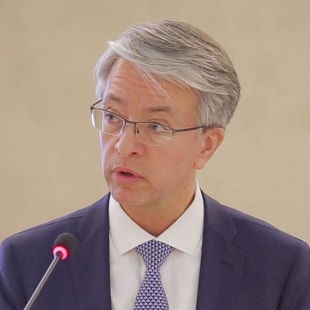The TCFD and the financial sector
Put in place in 2015 during the COP21 by the G20 Financial Stability Board, the TCFD aims to make markets more efficient, and more stable and resilient economies as pertains to climate change. Its recommendations represent a common international framework providing investors with clearer information on their exposure to climate-related risks and opportunities so that they can make choices about their operations and the allocation of capital.
Led by the financial sector, the TCFD has received official support (as of February 2020) from 1,027 organisations, which represented a market capitalization of more than 12 trillion dollars. Within BNP Paribas, Jane Ambachtsheer (Global Head of Sustainability, BNP Paribas Asset Management) and Mark Lewis (Global Head of Sustainability Research, BNP Paribas Asset Management) are both members of the TCFD. Their participation helps advance the collective work and notably lends their investment experience.
Towards the Paris Agreement objectives
For several years, BNP Paribas has been strongly engaged in the fight against climate change and works to align its activity with the objectives set by the Paris Climate Agreements.
The Group has put several financing and investment policies in the sectors of fossil fuel (coal, petrol and non-conventional gas) in order to limit the environmental impact of its clients’ operations. At the same time, the Bank has deployed different products and services (renewable energy financing, green bonds, etc.) throughout its business lines that promote a greener economy.
The publication of this first TCFD report represents an additional step toward leading this alignment with constructive transparency, a central concern of the 21st century.
Jean-Laurent Bonnafé, Director and Chief Executive Officer, BNP Paribas :
"I have personally supported the TCFD recommendations since 2017, and we believe they are an important contributing factor to implementing the energy transition in the financial sector and in the economy as a whole. They provide an excellent framework for taking stock on how much progress we have made thus far and how much further we still need to go."


